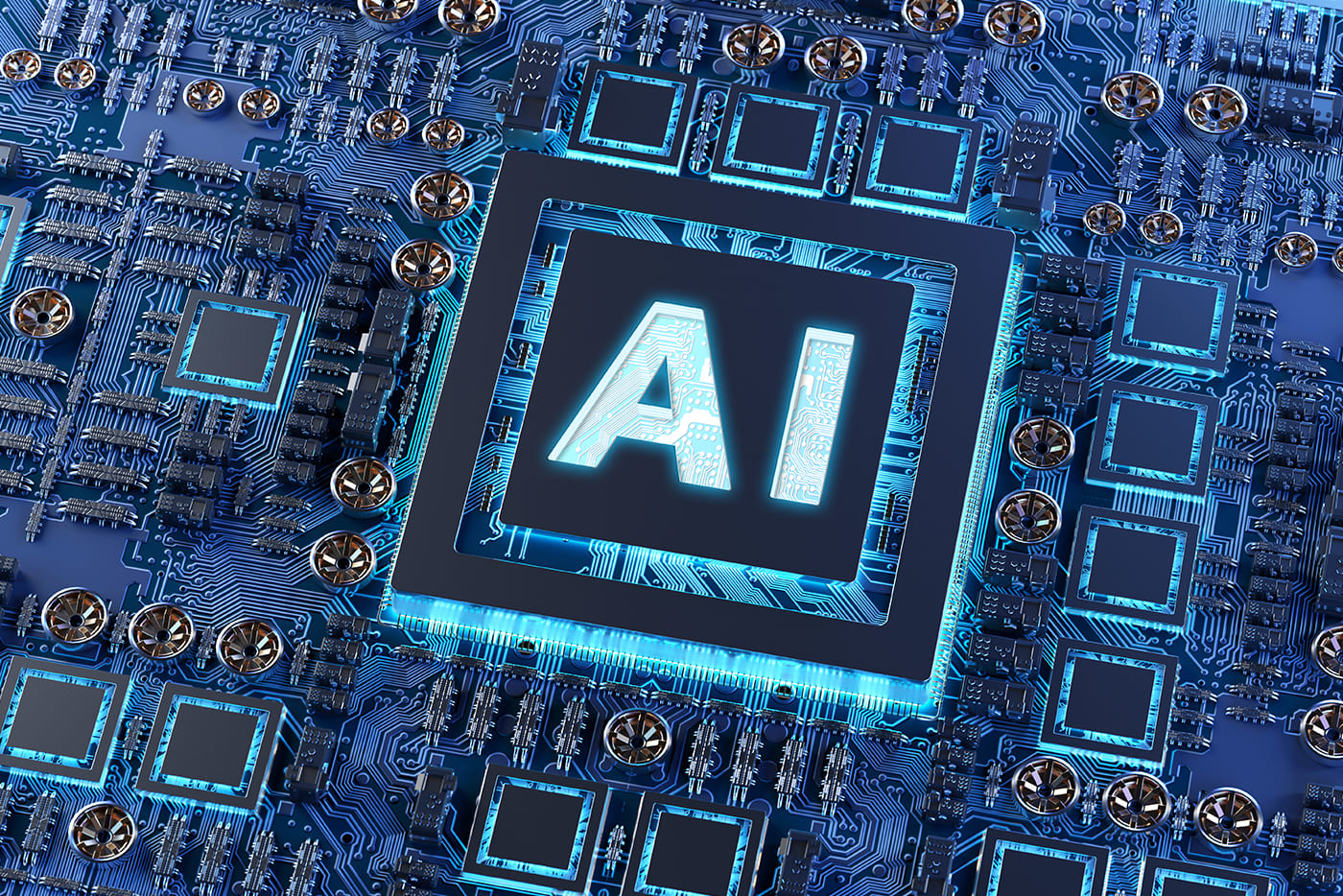Future Proof Your Business With AI In Products And Services
25 April 2022
There’s really no escaping artificial intelligence (AI) and the Internet of Things (IoT). It seems pretty much anything can be made smart these days – and that goes for services as well as products. This “cognification” of products and services is a major consumer trend that’s impacting all industries. In other words, whatever your sector, you can be sure your customers will soon expect more intelligent offerings (that’s if they don’t already expect it).

Let’s look at the smarter products, smarter services trend, and see how other businesses are embracing it.
Smarter products
You can slap the "smart" label on anything, but for a product to be truly intelligent, in my view, it needs to be connected. That means it needs to be able to gather and transmit data (this is where the IoT comes in), and learn to react to its surroundings and/or the user’s preferences (this is the AI bit). Combined, AI and the IoT can make interactions between consumers and products more meaningful and, crucially, more useful. There's really no point in making a product smart for the sake of it – it must add value for the user.
For me, Tesla is a great example of adding AI into a product in a meaningful way. AI (specifically, machine learning) is the technology that powers Tesla's autonomous driving features. Two AI chips make separate assessments of what's going on around the vehicle, and these assessments are then compared – if the assessments are the same, the car is guided accordingly. This enables better control and safety in autopilot mode. And because the autopilot is, for now at least, intended to assist the driver, not replace them altogether, drivers are frequently reminded to keep their hands on the wheel – and if they don't, the car gives a series of warnings and will eventually slow down and stop. Plus, there's sentry mode, which monitors the car's surroundings and takes video clips when the vehicle is unattended.
Looking ahead, integration with voice control and smart assistants like Siri and Alexa will become a key feature of smart products, and perhaps even for smart services. This brings us to…
Smarter services
Whether your organization is already a service-based business or you're considering branching from products into services, AI is vital to delivering the kind of service customers want and need in the 21st century. (This AI may or may not be combined with the data gathered from IoT devices.) Depending on your business, AI-enhanced services may mean a couple of different things. Firstly, there’s using AI to improve the existing service you provide to customers. Or there may be an opportunity to develop entirely new services and business models that are driven by AI.
Thanks to data and AI, businesses can now develop a much better understanding of their customers than ever before – their actions, their preferences, how they engage with services, etc. Armed with this knowledge, organizations can design much more responsive, intelligent solutions and deliver more personalized services. Amazon’s personalized recommendation engine is a prime example of an intelligent service that adds real value for customers.
Another good example comes from Capital One’s “intelligent assistant” Eno. This system uses natural language processing technology to understand customers’ questions about their money. For example, you can text “What’s my balance?" or even just send a money bag emoji, and Eno will understand what you mean. (Eno understands more than 2,200 terms and emojis just related to account balances.) The tool was built using real customer conversations from chat logs, and the result is a rich language model – including jokes and human-like language – that gives the experience of a real conversation, not a set of commands. Customers enjoy talking to Eno so much, 14 percent of customer texts are unrelated to banking. Capital One says customers often ask Eno personal questions or deep stuff like the meaning of life. Eno has even had a few marriage proposals! This example shows that even traditional customer-facing sectors like banking are embracing AI as a way to better serve customers.
Whether your organization is a product-based business, a service provider, or a mixture of the two, it’s vital you consider the smarter products, smarter services trend. In the future, I believe almost every product and service will have some element of AI to it.
There are many advantages to making your products and services more intelligent. You can build a better understanding of your customers, for example, and use this understanding to create better products and services in the future – thereby driving business success.
Related Articles
Will AI Solve The World’s Inequality Problem – Or Make It Worse?
We are standing on the cusp of a new technological revolution. AI is increasingly permeating every aspect of our lives, with intelligent machines transforming the way we live and work.[...]
How You Become Irreplaceable In The Age Of AI
In a world where artificial intelligence is rapidly advancing, many of us are left wondering: Will AI take our jobs?[...]
Why Apple Intelligence Sets A New Gold Standard For AI Privacy
In the rapidly evolving world of artificial intelligence, privacy concerns have become a hot-button issue.[...]
Can Your Device Run Apple Intelligence? What You Need To Know
Apple's announcement of Apple Intelligence has sent waves of excitement through the tech world.[...]
10 Amazing Things You Can Do With Apple Intelligence On Your IPhone
Apple Intelligence is poised to revolutionize the iPhone experience, offering a suite of AI-powered tools that promise to make your digital life easier, more productive, and more creative.[...]
Agentic AI: The Next Big Breakthrough That’s Transforming Business And Technology
The world of artificial intelligence is evolving at a breakneck pace, and just when you thought you'd wrapped your head around generative AI, along comes another game-changing concept: agentic AI.[...]
Sign up to Stay in Touch!
Bernard Marr is a world-renowned futurist, influencer and thought leader in the fields of business and technology, with a passion for using technology for the good of humanity.
He is a best-selling author of over 20 books, writes a regular column for Forbes and advises and coaches many of the world’s best-known organisations.
He has a combined following of 4 million people across his social media channels and newsletters and was ranked by LinkedIn as one of the top 5 business influencers in the world.
Bernard’s latest book is ‘Generative AI in Practice’.










Social Media